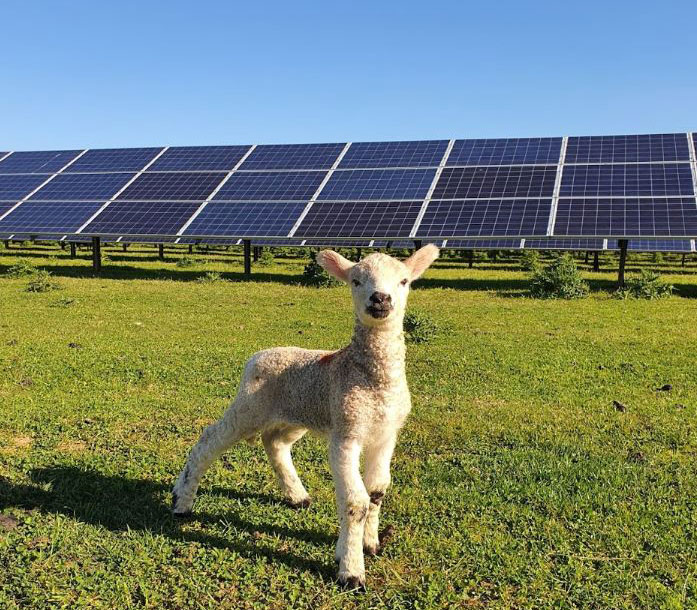Solutions
Our passionate and experienced people deliver successful clean energy projects globally.
Technologies
Driving a clean energy future through state-of-the-art renewable technologies.
See all technologiesResources
Browse our latest resources, including company updates, customer stories, industry insights, and research reports.
See all resourcesCareers
Join a collaborative team of passionate individuals who engage in meaningful, stimulating, and world-changing work.
Learn moreAbout RES
We live our mission, celebrate the people making it happen and transform the way the world produces and consumes energy.
See about usOur offices
Like our business, we’re truly global – but proudly local. Find contact and location details for every RES office.
Contact us
New solar farms, alongside other renewable energy technologies, generate the cheapest electricity for consumers and can provide secure, homegrown power. It is therefore no surprise that the UK government intend to deliver a fivefold increase in solar power by 2035 with Ireland establishing similar increase in scale by 2030. This creates a fantastic opportunity to diversify the income of farmland across the UK&I. Ben Crawford, RES’ New Sites Manager for solar, provides answers to some of the most frequently asked questions he receives from landowners about the potential to host solar on their land.
What land is suitable for a solar farm?
There are several factors to consider when determining whether a piece of land may be suitable for solar farm development.
- Relatively flat. Sites that are relatively flat are the most suitable to develop, although land with a minor gradient can also be considered, depending on which direction the land slopes.
- Minimum acreage. The minimum acreage of land for a solar farm varies by location, however as a rough guide, we prefer to develop projects with a minimum of 50 acres. We can also seek multiple landowners with neighbouring land to form a partnered project, increasing the overall development size.
- Grid connection. Only land that is relatively close to a grid connection – be that a substation or overhead line – is typically suitable for development. As development experts, we can help assess if this is the case.
How long will a solar farm operate for?
Solar farms are robust and can operate for over 40 years, providing long-term income for landowners. Our leases include an additional year before and after operation to construct and decommission the project.
Can a solar farm still be farmed?
Sheep may be able to graze on the land the solar farm occupies, providing two streams of income from the same parcel of land.
How will the solar farm benefit the community around me?
It will not only benefit the environment but also the local community where it is located. We work with the local community during the planning process to communicate and adapt the design of projects. One area that is of particular interest is community benefit opportunities. The community benefit package we provide can take various forms depending on what the community would find of most value.
How is the solar farm maintained?
On a day-to-day level the solar farm is remotely managed 24/7/365 by our Global Control Centre based in Glasgow, which allows us to monitor its performance and proactively plan maintenance. Technicians also regularly attend sites to perform physical inspections and repairs. Every 6-12 months the solar panels will be washed to remove any accumulation of dust, allowing us to maximise their efficiency for consumers.
Grass and hedge cutting can either be completed by the landowner or undertaken by us. Landowners can fertilise the land beneath the panels using specialised machinery and equipment. Many landowners also opt to let their land grow organically and lie fallow, whilst the solar farm is operational, allowing benefits such as habitat ecosystems to form and supporting soil recovery.
Can solar farms enhance biodiversity?
As a responsible developer, weaving in additional biodiversity enhancements on all sites is a priority for us – whether it’s through tree and hedgerow planting, or meadow restoration via wild flowering and sowing species-rich grass.
What if the sun doesn’t shine?
Solar farms are an effective technology that don’t need direct sunlight to operate. The panels generate electricity from daylight. We use the latest and most advanced technology such as bifacial panels that can capture sunlight on both sides increasing their efficiency and yield.
What happens to the electricity generated on my land?
The solar farm is connected to the electricity network, allowing the clean, renewable electricity generated to be distributed to households and businesses across the country.
What happens when a solar farm comes to the end of its’ operational life?
At the end of the operational life of a solar farm the project will be fully decommissioned and the land reinstated.
Why RES?
RES has been developing, constructing and operating solar projects in the UK&I for nearly 30 years and has a team of over 760 renewables professionals in the UK&I alone. We have the experience and knowledge to make the process of leasing your land for solar farm development as simple as possible. Many of our people come from farming backgrounds therefore understand the concerns and interests of farmers and landowners very well.
About the author
Ben Crawford is RES’ New Sites Manager for solar. Ben has been with RES for two years after completing a placement at RES during his final year of study at Queens University. Ben studied agriculture for four years and holds a degree in Agriculture and Sustainable Technology. In addition to his work at RES, Ben also farms Blackface Sheep with his dad Gordon and brother Jack on their family hill farm in County Antrim, Northern Ireland.
Visit: developmentsolaruki.res-group.com
Get in touch:
Republic of Ireland and Northern Ireland
Ben Crawford, New Sites Manager
Phone: + 44 (0) 7963 771 317
Email: [email protected]
England, Scotland and Wales
Caroline Gilpin, Senior New Sites Manager
Phone: +44 (0) 7768 169 226
Email: [email protected]

